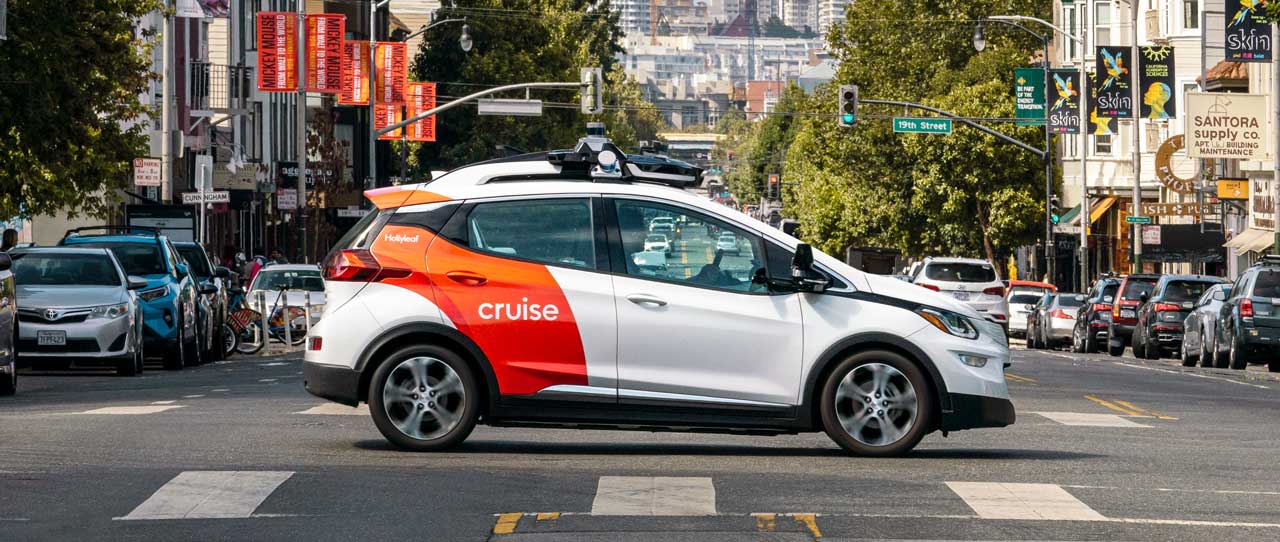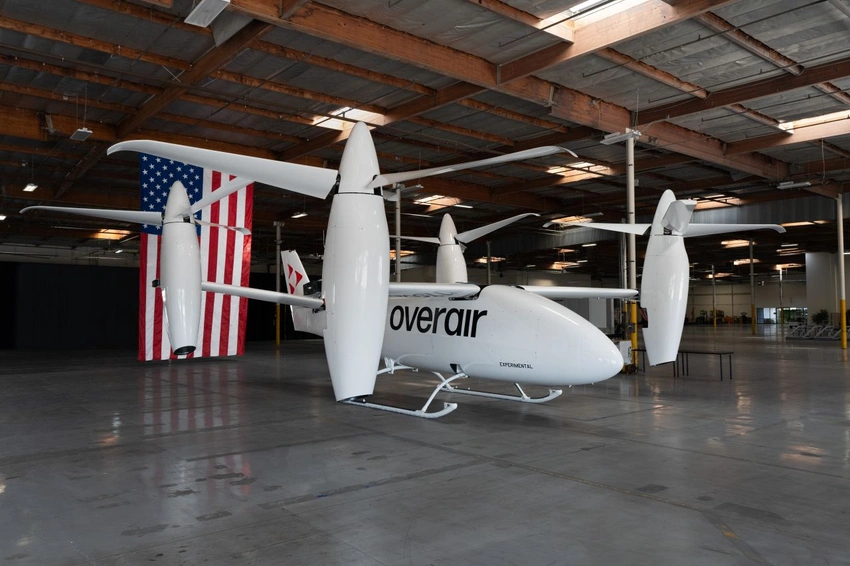
Photo: Cruise
Driverless taxis get the green light in San Francisco
14 August 2023
by Christopher Carey
Two driverless taxi operators have been given the green light to expand their services throughout San Francisco following a landmark ruling by California regulators.
The California Public Utilities Commission (CPUC) voted to allow full commercial robotaxi services in the city last week, despite objections from some San Francisco officials who claimed questions still abound regarding safety.
A three-to-one vote by the agency’s commissioners will now allow Waymo and Cruise, which are majority-owned by Alphabet and General Motors respectively, to operate driverless taxis in the city without restrictions.
Writing on X (formerly Twitter), San Francisco Mayor London Breed welcomed the news, but also referenced “challenges” that still need to be resolved.
“Autonomous vehicles (AVs) are a key part of the future of transportation, not just in San Francisco but in the world,” she said.
“As a city that leads on innovation, we are committed to integrating AVs and improving how they can work safely and effectively in our city. There remain challenges we need to work to resolve, especially when AVs interfere with our first responders. We are studying this decision, and exploring our options for next steps.
“In the meantime, we will continue to work with the regulators and the industry leaders to improve this emerging technology while prioritising the safety and function of our streets.”
Expansion
CPUC Commissioner John Reynolds – who was previously employed as general counsel at Cruise – said: “While we don’t yet have the data to judge AVs against the standard that humans are setting, I do believe in the potential of this technology to increase safety on the roadway.”
Collectively, both firms have deployed about 500 driverless cars without safety drivers behind the wheel across the city, but until now they have been limited in where and when they can drive and whether they can carry paying passengers.
Driverless cars are also being tested in a handful of other US cities and Alphabet’s Waymo has a commercial service in part of Phoenix and its surrounding suburbs.
“[This] marks the true beginning of our commercial operations in San Francisco,” said Tekedra Mawakana, co-CEO of Waymo.
“We’re incredibly grateful for this vote of confidence from the CPUC, and to the communities and riders who have supported our service.”
Waymo, which also operates in Phoenix, has said it is planning a gradual expansion of its operations in San Francisco following the approval, adding that over 100,000 people have registered for the service – which has a waiting list and is not yet fully open to the public.
Cruise, which also operates in Austin and Phoenix, also has a waiting list and expects to expand in San Francisco gradually, and also plans to start offering services in Houston and Dallas.
Backlash
Before voting, the CPUC heard more than six hours of public comment from residents and special interest groups supporting or opposing the measure to expand paid autonomous vehicle services.
Transportation and safety agencies such as the police and fire departments, as well as many residents, had opposed expanding paid robotaxi services because of concerns about erratic driving and interference with emergency operations.
The commission heard testimony from the San Francisco Municipal Transportation Agency [SFMTA] regarding almost 600 incidents involving AVs since spring of 2022, which the agency believes is “a fraction” of the total due to the absence of reporting requirements from companies.
“The SFMTA supported a measured, incremental approach to expanding AV passenger services in San Francisco that fully considers potential impacts of this new technology, and establishes broader transparency and incremental approvals based on performance benchmarks before allowing unrestricted driverless AV services,” an SFMTA spokesperson told Cities Today.
“Unfortunately, the California Public Utilities Commission has prematurely allowed unrestricted driverless AV commercial passenger services on San Francisco streets.”
In the most serious cases, officials referenced situations where self-driving cars have interfered with emergency services or obstructed traffic and public transit.
“The [San Francisco] Fire Department strongly disagrees with the CPUC decision to allow commercial operations by the autonomous vehicle companies in San Francisco,” said Captain Jonathan Baxter, Public Information Officer, San Francisco Fire Department.
“We believe the ruling ignores public safety and emergency response interference that we presented to the Commission.
“The decision permits industry expansion without solving any of the underlying problems, [and] we do not believe the industry has any incentive to remain at the table and solve their problems.
“These incidents with public safety are not going away and are in fact increasing.”
‘Just the beginning’
Last Friday, a day after the CPUC’s decision, a series of traffic jams in the city caused by stalling Cruise vehicles prompted San Francisco Board of Supervisors President Aaron Peskin to say that government agencies would ask the city attorney to file a petition requesting that the state revisit the CPUC’s decision.
Peskin said the Office of the Mayor, Board of Supervisors, Fire Department, Municipal Transportation Agency and County Transportation Authority would join together in seeking to tighten regulation of the programme.
“This is just the beginning. It’s far from the end,” the supervisor told the San Francisco Chronicle on Sunday.
“We need to get it right and we are trying to partner with Cruise and Waymo, which hasn’t been real smooth. They are very secretive.”
Cruise blamed Friday’s incidents on “wireless connectivity issues,’’ due to an overload of mobile phone usage at a nearby concert.
Peskin added that this appeared to be an “inherent flaw” in driverless car technology.
Image: Cruise









